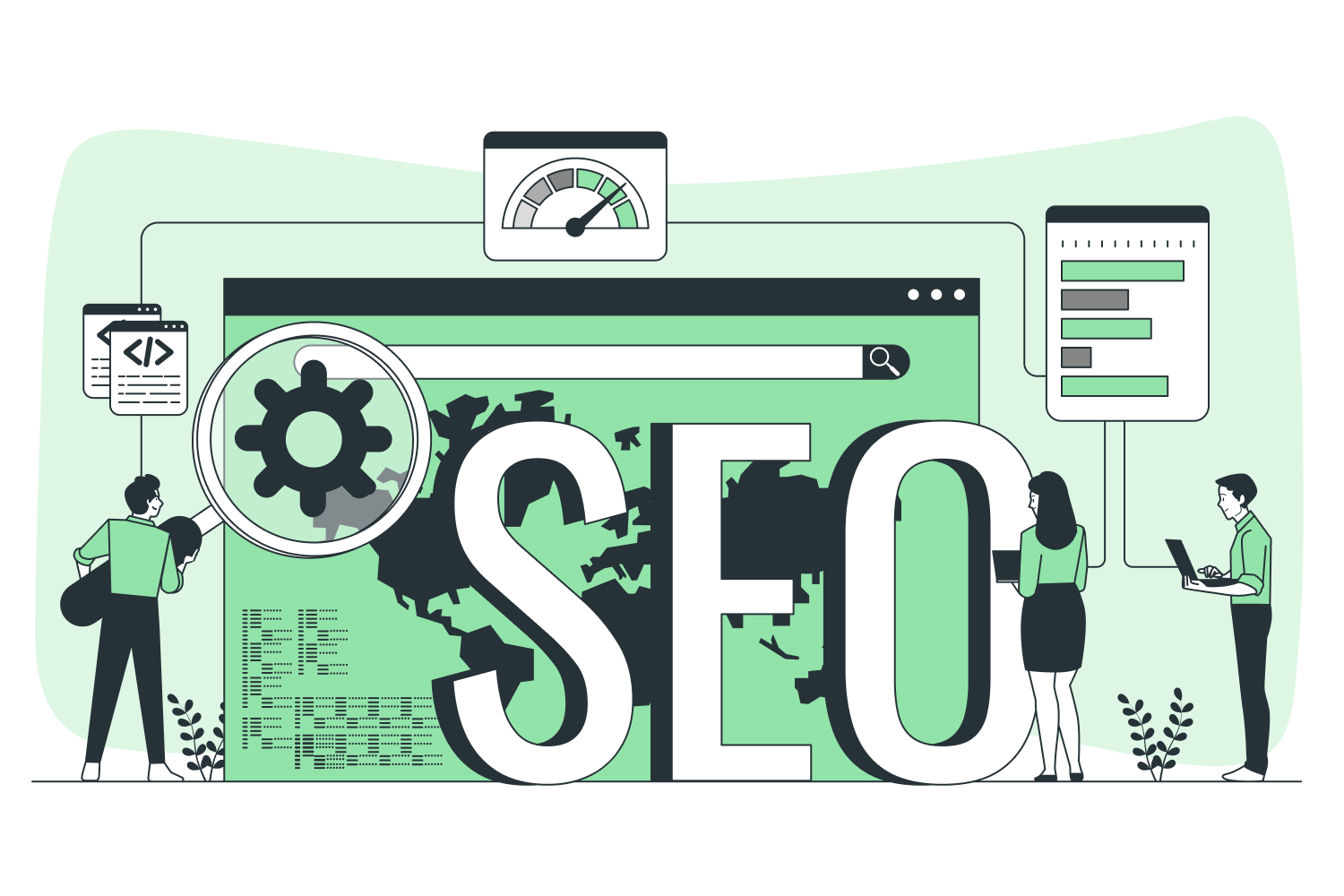Building Web Presence: How a Website Can Transform Your Small Business
Learn the importance of web presence for small businesses and get insights on starting your successful online journey. Elevate your brand with a strategic website.

Alina Sharafutdinova
Web Developer

Understanding the Benefits of Having a Website
In today’s digital era, the importance of an online presence for small businesses cannot be overstated. A website serves as the digital storefront of your business, significantly enhancing your visibility and credibility. It’s not just about being seen; it’s about being seen as professional and trustworthy.
Imagine this: You’ve got a business – maybe you’re a good at brewing the perfect espresso, an expert of fixing leaky pipes, or a defender of legal rights. In today’s fast-paced digital era, your business isn’t just a physical storefront or an office space; it’s also a shining beacon in the vast digital landscape. Think of a potential client out there, in need of the exact service you’re so good at. What’s their first move? They’ll probably turn to their trusted friend, the internet. They’ll type things like “dentist nearby,” “emergency plumber,” or “life coach online.” This is where your website comes into play.
Your website isn’t just a bunch of web pages strung together; it’s the story of your business, told in your voice, showcasing your skills and achievements. It’s this digital narrative that acts as a magnet, drawing in clients. But it’s more than just an online business card or brochure. A well-crafted website is a hub of endless possibilities. It’s a space where clients can book your services with a simple click, where inquiries turn into conversations, and where you can launch exciting promotions that make your audience feel special and valued.
How to Create a Business Website: The Basics
Creating a website might feel like a challenge, but it’s actually quite a straightforward process. It involves key steps, each crucial for establishing a successful online presence. Among these, a standout factor is the design of a user-friendly and responsive website. It’s essential to emphasize the importance of a mobile-responsive site. Nowadays, a majority of people access the internet via smartphones. It’s convenient, fast, and allows for quick information access on the move. Consider how often frustration sets in when a website is nearly inoperable on a smartphone, prompting a thought like “I’ll handle this later on my laptop,” only to forget about it entirely. Your website needs to be easily navigable and visually appealing across a variety of devices, from large desktop screens to compact smartphones.
The Approach: How to Make Your Small Business Website
Choosing the Right Platform
Several website builders cater specifically to the needs of small businesses. When selecting a platform, consider factors such as affordability and ease of use. Platforms like WordPress, Wix, and Squarespace offer different features and templates that can be tailored to suit your business needs.
Designing Your Website
When designing your website, keep your target audience in mind. The design should appeal to the people you want to attract. Additionally, maintaining brand consistency throughout your website – from colors and fonts to the style of images – is essential for brand recognition and recall.
Essential Features Every Small Business Website Should Have
A successful small business website must be well-equipped with key features to enhance user experience and promote business effectively. Essential elements include:
- Responsive Design: Ensuring the website is mobile-friendly.
- Clear Navigation: Easy-to-understand menus for quick information access.
- Strong Call-to-Action Buttons: Guiding users to take desired actions.
- Testimonials and Reviews: Boosting credibility with customer feedback.
- SEO Optimization: Improving search engine visibility.
- Blog Section: For engaging content and better SEO.
- Social Media Integration: Linking profiles and sharing options.
- Security Features: Implementing measures like SSL certificates for data safety.
- FAQ Page: Addressing common customer queries.
- High-Quality Visuals: Using professional images and videos.
- Live Chat Option: Providing immediate assistance.
- Analytics Tools: Understanding visitor behavior for strategy refinement.
These features not only improve the user experience but also contribute significantly to business growth and customer relationship building.
Leveraging SEO for Your Small Business Website

Basics of SEO and Its Importance
Search Engine Optimization (SEO) is crucial in driving traffic to your website. It involves optimizing your website’s content so that it appears higher in search engine results, making it more likely for potential customers to find you.
Implementing SEO Strategies
Optimizing your website for search engines involves using relevant keywords, creating compelling meta descriptions, and ensuring high-quality content. These strategies help improve your site’s visibility and attract more visitors.
Measuring and Improving Website Performance
To understand how your website is performing, use tools like Google Analytics. These tools can help you analyze website traffic and user behavior, providing insights that can be used to further optimize your site.
Affordable Solutions for Website Creation and Maintenance
Exploring Cost-Effective Website Builders
There are several affordable website builders available that offer a range of features suitable for small businesses. Compare options like WordPress, Wix, and Weebly to find one that fits your budget and requirements.
DIY vs. Hiring a Professional: What’s Best for Your Business?
Building a website is now more accessible than ever, particularly with the array of modern website builders available. However, an essential question to consider is whether you have the time to devote to this task. Even if you have web design and development skills, crafting a website and fine-tuning it for search engine optimization to attract more customers will require a significant amount of your time. This undertaking can divert your focus from other critical business activities, especially if you’re managing a small business.
Deciding between a DIY approach or hiring a professional to build your website hinges on several factors, including budget, time constraints, and your level of expertise. While opting to do it yourself might seem more cost-effective, enlisting the help of a professional can save you valuable time and yield a more sophisticated and polished end product. Experienced web designers and developers can efficiently translate your business needs into a compelling online presence. They stay abreast of the latest design trends, technical standards, and SEO practices, ensuring your website not only looks contemporary but also performs effectively in search engine rankings. Furthermore, professionals can provide ongoing support and maintenance, which is crucial for keeping your website secure against cyber threats and ensuring it evolves with your business needs.
Your Website as a Growth Tool for Your Business

Recap of Key Points
In summary, a website is an indispensable tool for small businesses looking to grow and thrive in the digital landscape. From choosing the right platform to leveraging SEO, each step is crucial in creating a successful online presence.
Next Steps and Resources
The journey to creating an effective website doesn’t end here. Consider the next steps in your digital strategy and seek additional resources for continuous learning and improvement. Remember, your website is not just a digital entity; it’s a growth tool that reflects your business’s vision and values.